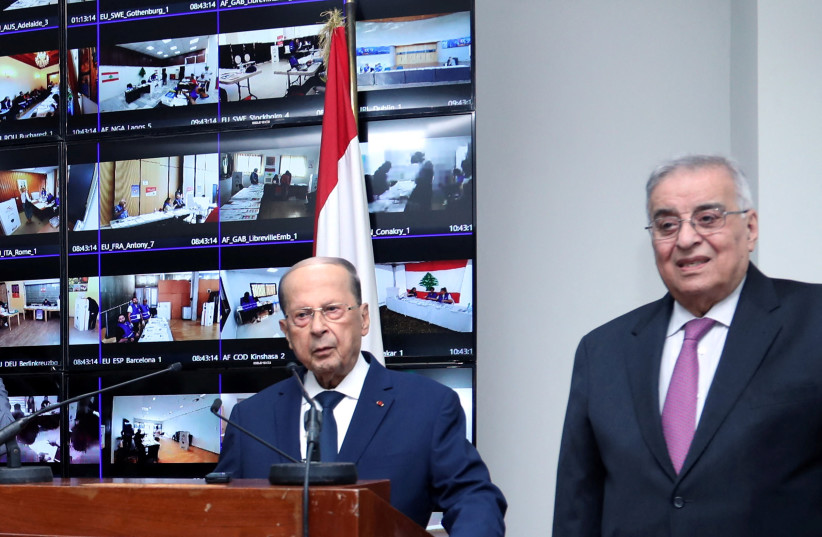Lebanon’s claims to the Karish gas field are baseless, Energy Minister Karin Elharrar said Monday. She warned Beirut not to threaten Israel.
“There is absolutely no… connection between the Karish reservoir and the lines under dispute,” Elharrar told 103FM. “I don’t suggest [that Lebanon should] try to surprise Israel.”
Elharrar’s remarks came a day after a natural-gas storage and production ship operated by Energean arrived at the Karish gas field, about 80 km. west of Haifa in the Mediterranean Sea.
Lebanese President Michel Aoun on Sunday said the vessel had entered “the disputed maritime area with Israel... [and] any action or activity in the disputed area represents a provocation and an aggressive action.”
The Karish field is south of a triangular area of the Mediterranean Sea that has been subject to a dispute between Israel and Lebanon. The area starts at the countries’ land border, is five to six km. wide on average and would make up about 2% of Israel’s economic waters.

Israel and Lebanon submitted maps with their claims to the UN in 2011. In late 2020, the countries entered negotiations on the disputed area, indirectly because the Lebanese government refused to hold direct talks with Israel.
After four rounds of US-mediated talks, Lebanon sharply increased its demands, almost tripling the disputed area from 869 sq.km. to 2,300 sq.km. to include the Karish natural-gas field. In response to the increased demands, Israel drew its own map, doubling its own claim. Neither side submitted its proposal to the UN, making Lebanon’s demand unofficial in Israel’s view.
Elharrar said Aoun’s claims were “very distant from reality.”
“The territory in question, of the Karish and Tanin [fields], is not under dispute,” she said. “It is our territory, our natural gas. The license was initially granted… in 2008.”
“The territory in question, of the Karish and Tanin [fields], is not under dispute. It is our territory, our natural gas. The license was initially granted… in 2008.”
Energy Minister Karin Elharrar
Elharrar called on Lebanon to return to negotiations so that it could begin gas exploration in its own economic waters.
Official speculation
“Israel is acting to extract gas from our reservoirs – only in our territory,” Defense Minister Benny Gantz said.
“This is a civilian matter, and the defense establishment is not involved in the matter other than securing the gas rig and the area,” he said at a Blue and White faction meeting. “Anything connected to disputed territory will be solved within the framework of negotiations mediated by the US.”
A senior government official speculated that Lebanon was threatening Israel over the developments in Karish for “internal reasons” because “the Zionist enemy unites them.”
In terms of security concerns following Aoun’s comments, the official said Karish’s development was fully coordinated with the entire government.
“Karish is ours,” the official said. “It is south of the lines of the area of dispute. They have their own gas; they should develop it.”
Last Tuesday, Energean said it plans to “immediately commence hook-up and commissioning operations” at Karish and start commissioning the sales gas pipeline for three to four months, delivering first gas from the reservoir in the third quarter of this year.
The progress on Karish comes as Israel has been negotiating with the European Union to export gas to Europe via Egypt, following sanctions on Russia over Ukraine. Israel has been preparing to double its export capacity in the coming years.
